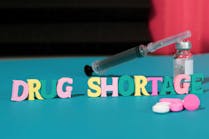Why not simply do nothing about sustainability in healthcare?
The United States of America may have sustained the existence of the “Know-Nothing Party” in the mid-1850s, but here in the early 21st century apprehension, cynicism, indifference, procrastination and skepticism are among the culprits of a “Do-Nothing Party” when it comes to implementing sustainability projects and programs within healthcare organizations.
While plenty of hospitals and nonacute care facilities have implemented sustainability efforts through the years, plenty more have yet to do it with the naysayers typically using budgets, economics and priorities as motivation for their eco-friendly malaise.
Still, by and large, the healthcare industry seems to lumber along at a glacial, if not snail’s, pace and remains in operation for millions upon millions of patients. So what if much of the industry did nothing about the environment and just maintained the status quo on sustainability?
After posing that question you’d think you lit the fuse of a powder keg, albeit a fuse made from sustainable organic hemp, of course.
Small part of bigger picture
Maybe it’s even larger
Cause, effect tops symptoms
What a dangerous idea
You’re kidding, right?
“This is not an option,” detonated Paul Murphy, Vice President, Major Accounts & Vertical Markets, Canon Solutions America Inc.
Simply a poor decision
“It would be the advice of the Mattress Recycling Council that to do nothing but to continue to trash your old mattresses is a poor decision,” noted Joy Broussard, California Program and Logistics Coordinator, Mattress Recycling Council. “It is a poor decision financially because your institution will pay ever growing disposal fees and transportation costs. If a mattress is not recycled, then it is landfilled. Many states or communities are banning mattresses from landfills because a mattress takes up too much space. Your trash disposal firm will need to drive further and further to find somewhere to bury your old mattresses and at ever increasing tip fees. Those costs are always passed directly onto you.
“As an institution trying to improve its environmental reputation, doing nothing is a poor environmental decision. The longer travel distances to ship your old mattresses add to greenhouse gas emissions. The valuable materials within the mattresses that are buried are lost forever. Just imagine, for example, how many times those steel springs that you buried with that old mattress could continue to be re-shaped into future steel products time and time again.”
‘Code Red’ moral responsibility
Healthcare must lead
“I don’t believe doing nothing is an option, and even the status quo is unlikely to be good enough,” said Andrew Knox, Manager, Environmentally Preferred Products, Premier. We are increasingly witnessing the effects of climate change and pollution on the people we as healthcare professionals serve, as well as on the environment. Pressure for change is only going to increase, whether from patients, stakeholders, or regulators. Healthcare cannot stand by and leave it to other industries to limit environmental impacts. We must show leadership.”
Amounts to a critical duty
“Although healthcare industries continue to operate and even grow, we cannot maintain the status quo because without drastic change, there will be an irreversible negative impact on the environment,” warned Andy Marshall, CEO, Sterilis Solutions. “Since the 2016 Paris Agreement to limit global warming, businesses have been putting plans in place to reduce carbon dioxide emissions. Despite these advances, progress on climate action has been limited. This lack of progress is partly attributed to supply chains since the bulk of carbon dioxide emissions happen here. A company’s sustainability efforts reside mainly in the supply chain, giving light to the fact that a company is no more sustainable than its supply chain.
“Health operations are fundamental to maintaining the health and welfare of our society, as well as individual health, and have lasting impacts on the development and economic growth of the world. By developing and implementing environmentally conscious, forward-thinking solutions within our supply chains, we can further progress the health and general well-being of current and future generations.
“Implementing sustainability solutions now is critical to mitigating future consequences for generations to come. Sustainability should be at the forefront of most, if not all, healthcare organizations’ priorities. By seeking out products, organizations and solutions that position environmentally friendly initiatives at the helm, we greatly strengthen our health systems and the health of the environment.”
Too much is at stake
Doing nothing is … unhealthy
“Doing nothing is not an option. My children’s lives and the lives of countless other individuals are at stake. Extreme heat, severe weather, air pollution and other symptoms of climate change are significantly increasing heat-related deaths, injuries and diseases across the globe. Harmful chemicals, once introduced into the supply chain, are not easily, if at all, extracted, except through attrition. [See https://newsroom.vizientinc.com/improving-human-and-environmental-health-call-for-environmentally-preferred-health-care-sourcing.htm?blog/supplychain.]
“Simply put, healthy people cannot exist on a sick planet. I refuse to be a bystander while the ‘greatest global threat to public health’ negatively impacts the health and wellbeing of our current generation and the generations to come.”

Rick Dana Barlow | Senior Editor
Rick Dana Barlow is Senior Editor for Healthcare Purchasing News, an Endeavor Business Media publication. He can be reached at [email protected].












